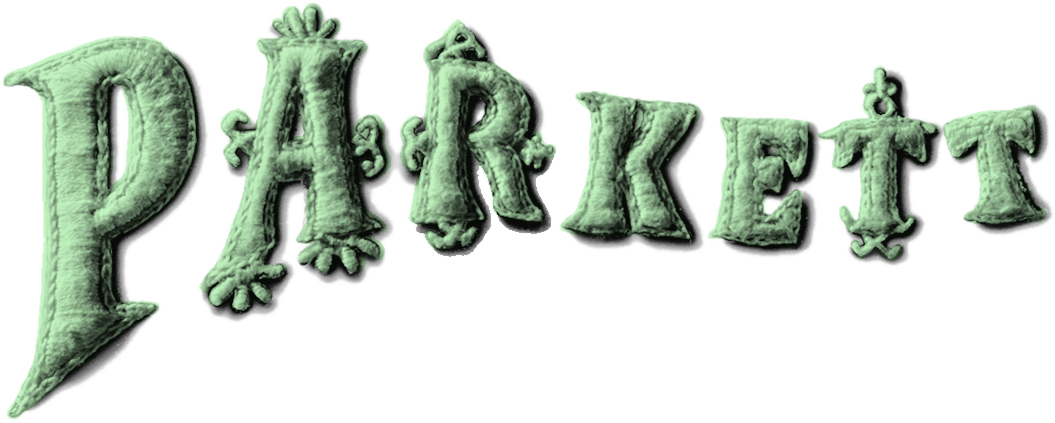Parkett Vol. 67 - 2003 | John Bock, Peter Doig, Fred Tomaselli
John Bock
Read a selected text (PDF)
View edition
Peter Doig
Read a selected text (PDF)
View edition
Fred Tomaselli
Read a selected text (PDF)
View edition
Insert Marcel Dzama (PDF)
Spine Fiona Banner
Cumulus:
On appropriation by Lauri Firstenberg (PDF)
On art and science by Greg Hilty (PDF)
Miscellaneous:
Hanne Darboven by Sibylle Omlin (PDF)
U.S. & Canada
Please place your order through our distributor D.A.P. here.
Browse Selected Texts and more on the Collaboration Artists
Artist Insert
Editorial
John Bock, Peter Doig, and Fred Tomaselli seem to be spelling out a new universe in the act of shaping their personal inventory in space or confining it to a plane. The first paints, the second constructs and gives eccentric lectures, and the third embeds tiny cutouts and real plants under an acrylic veneer. Their points of reference burrow deep into the world and break out of it, oscillating between cosmic and atomistic dimensions. It is as if the universe and its subuniverses were being tidied in order to create startling new complexities, the likes of which, though often conjectured, have never been seen in this form before, for they are certainly not hermetically sealed. On the contrary, they breathe a supra-personal and comprehensible credibility. Are these artists forging, pasting, and even knitting a new concept of authenticity with their matter-of-fact array of curious set pieces?
The heart of the matter is a world perceived in close and, so to speak, truthful association with the activities attendant upon that perception. If an artistic past reverberates in the “intimacy” of Peter Doig’s paintings, then it is precisely because the quintessential ordinariness of the subject matter that feeds into them speaks so intensely of today. This explains the engaging approach to materials that strikes the viewer on closer, empathetic study. Scents, colors, images are inscribed in the “oil on canvas” as wide-ranging immaterial elements, as the sedimentation of scraps deposited, invited and uninvited, in all of us, for are we not at times remote-controlled machines of sensation?
John Bock also proposes an astonishing treatment of materials by shifting ideas of truth content to the abstruse backyards of experience and discourse: to the realms of shaving cream, bean soup, and bales of hay, as well as the remote and recondite scholarship of abstract scientific formulas and inaccessible laboratories. Solid, down-to-earth fact and aloof abstraction blend into each other in the most unlikely—or rather likely—encounters between reputed nature and crystalline theory, between heartless sanity and heartfelt insanity.
The curiosities dealt with in this issue of Parkett warrant that designation only from a specific vantage point. The picture on the cover shows searchers willingly immersed for the moment in another, “alien” world—one that quite clearly belongs to all that is old and familiar. Concepts not only of material but also of time melt into each other in the works of these artists.
Fred Tomaselli’s pictures, reminiscent of amber, capture both eons and seconds that coalesce into the most delicately chiseled images of unfathomable depth. When Tomaselli plunges into the proverbial flood of mass media images and, with devoted care, patiently shifts and organizes his clipped “atoms” until the universe radiates anew in the soaring dimensions of his spaces, it seems he has found a passing answer to the question of why such a flood of images even exists.
The Insert is by Marcel Dzama, and the spine has been designed by Fiona Banner.
Table of Content
The Starling Variations by Troy Selvaratnam
John Bock
Ars Combinatoria by Jens Hoffmann
Rope Tricks by Daniel Birnbaum
Bock-Ness Monster by Jan Avgikos
Peter Doig
Peter Doig – A Partial Record by Paul Bonaventura
Contemporary Fragility by Rudi Fuchs
Peter Doig’s Now by Beatrix Ruf
Fred Tomaselli
Through a Window Darkly by Dan Cameron
Transcendence Is Pop by James Rondeau
Tomaselli’s Postmodern Gnosticism by Daniel Pinchbeck
Marcel Dzama, Insert
My Work Ends in Music – Hanne Darboven by Sibylle Omlin
The Invention of the Schaulager by Theodora Vischer & Jacques Herzog
Wang Fu’s Cycle Prima Materia/Riots, Les Infos du Paradis by Hartmut Böhme
Notes on Renewed Appropriation Appropriationisms, Cumulus from America by Lauri Firstenberg
Mimetic Moments, Cumulus from Europe by Rita Kersting
Underground, Underworld, Understanding, Colin De Land, 1955 – 2003 by Fracesco Bonami
Autoreroticism by Daniele Muscionico





